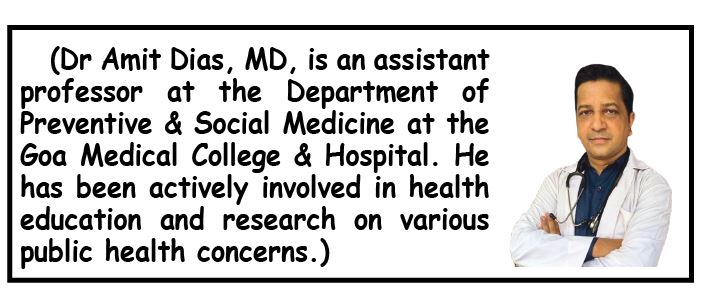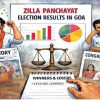Goa is abuzz with excitement as vintage bike and car owners, users, collectors and fans are decking […]
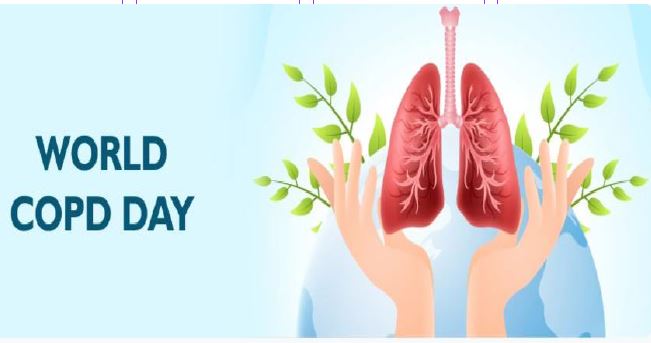
BREATHE SMART! Understanding COPD and lung health…
MIND & BODY, HEART & SOUL, Nov 30- Dec 06 2024 November 29, 2024World COPD Day:
COPD Day is observed on the third Wednesday of November each year. Says Dr Amit Dias, “The COVID-19 pandemic gave us a clear picture of the importance of our lungs – we must learn to take care of them.” The theme this year is “Know Your Lung Function.” Here is some lifesaving information you may share with your family and friends.
Q&A Interview with Dr Amit Dias
Goan Observer: Doctor, it’s yet another health related day! Why do we need to observe World COPD Day?
Dr Amit Dias: World COPD Day is observed on the third Wednesday of November each year with the following objectives:
To Raise Awareness: COPD is a leading cause of death globally, yet it remains underdiagnosed and poorly understood. World COPD Day aims to educate people about its causes, symptoms, and treatments.
To Encourage Early Diagnosis and better care: Many people with COPD don’t realize they have it until it is advanced. The day promotes understanding of lung health and encourages timely medical consultation for symptoms like chronic cough and breathlessness. The day is also about pushing for improved healthcare access and support systems for those affected by COPD.
To Emphasize Prevention: Most importantly, by highlighting risk factors like smoking and air pollution, the day underscores the importance of prevention in reducing the burden of COPD.
The event is organized by the Global Initiative for Chronic Obstructive Lung Disease (GOLD) in collaboration with health organizations worldwide. Each year, a specific theme guides the discussions and activities, with the 2024 theme being “Know Your Lung Function.”
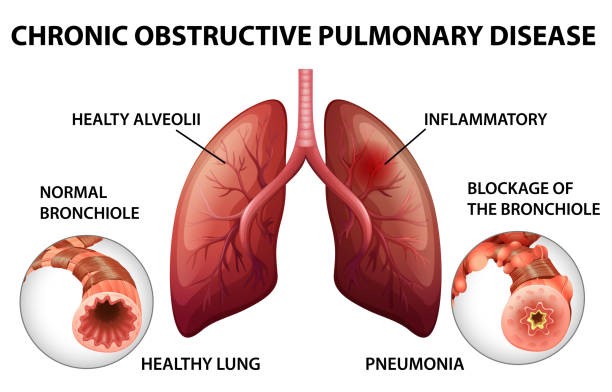
Q: Doctor, like me, some people may not fully understand what COPD means…could you explain what it is?
A: COPD stands for Chronic Obstructive Pulmonary Disease. It is a progressive lung disease characterized by persistent airflow limitation. It includes conditions like chronic bronchitis and emphysema, and its primary symptoms are breathlessness, chronic cough, and sputum production. It’s a major cause of morbidity and mortality globally.
Q: Could you share some insights into the burden of COPD globally and in India?
A: According to the WHO, globally, COPD is the fourth leading cause of death. It affects over 350 million people, and its prevalence continues to rise due to aging populations and ongoing exposure to risk factors like smoking and air pollution. In India, COPD is a major public health concern, with over 55 million people affected, contributing to significant mortality and healthcare costs. Nearly 90% of COPD deaths in those under 70 years occurs in the low and middle income countries. It is something we cannot ignore.
Q: That’s startling, can you explain what causes COPD?
A: The leading cause of COPD is long-term exposure to harmful particles and gases, particularly tobacco smoke, including passive smoking. Other causes include exposure to biomass fuel smoke, industrial pollutants, poor ventilation in homes, and a history of respiratory infections during childhood. I do not want to comment on the state of air quality. It is time everyone gets serious about it and takes corrective action.
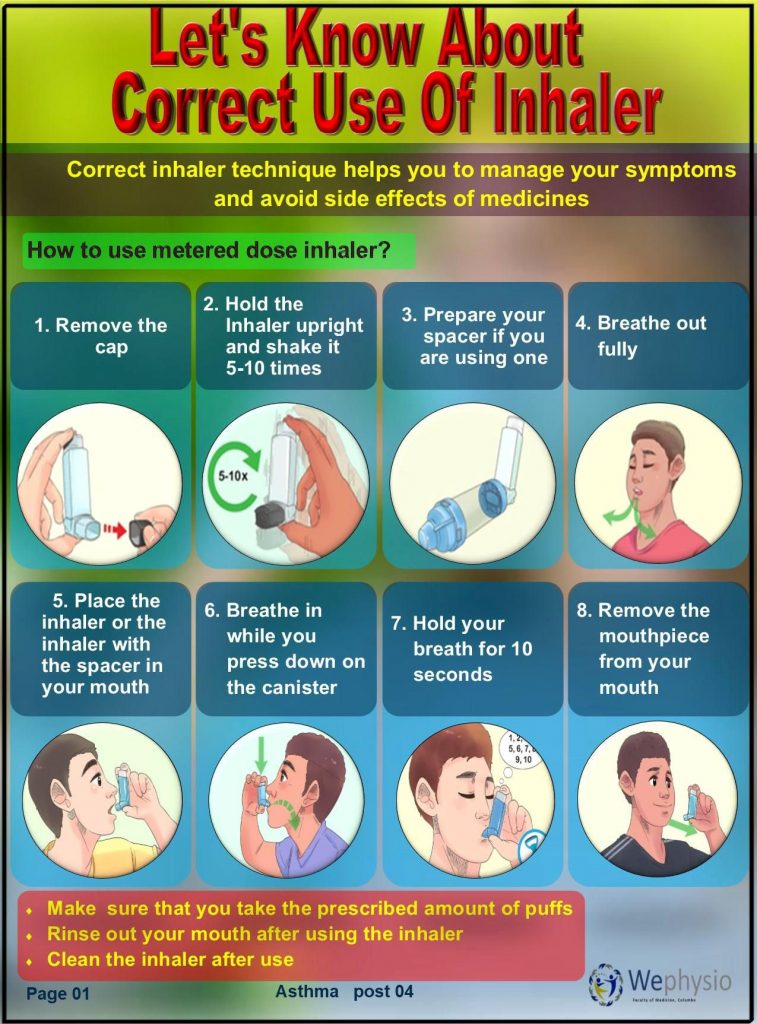
Q: How can one recognize the signs and symptoms of COPD?
A: In COPD the lungs get damaged or clogged with phlegm. The main symptoms include:
• Persistent cough with mucus production.
• Breathlessness, especially during physical activity.
• Wheezing and chest tightness.
• Frequent respiratory infections.
As the disease progresses, even daily activities like walking or climbing stairs become difficult.
Q: Is COPD fatal?
A: Yes, COPD can be life-threatening, especially in advanced stages or during acute exacerbations, where symptoms worsen rapidly. However, with early diagnosis, lifestyle changes, and proper treatment, many people live long and productive lives despite the disease.
Q: The theme this year is “Know Your Lung Function.” Could you explain what lung function tests are and how they are interpreted?
A: Lung function tests, particularly spirometry, measure how well your lungs are working. Spirometry assesses two key parameters:
• Forced Vital Capacity (FVC): The total amount of air you can exhale after a deep breath.
• Forced Expiratory Volume in one second (FEV1): How much air you can exhale in the first second of a forced breath.
A reduced FEV1/FVC ratio indicates airflow obstruction. Knowing your lung function helps diagnose COPD early and monitor its progression, enabling timely interventions. COPD if untreated can predispose the patient to other problems.
Q: Does having COPD put people at higher risk of getting diseases?
A: Yes, as I mentioned it can lead to a range of other health conditions. They are more prone to get lung infections like flu and pneumonia, they can get lung cancer, heart problems, weak muscles, brittle bones, depression and anxiety.
Q: What should someone do if they experience an acute exacerbation of COPD?
A: An acute exacerbation is a sudden worsening of symptoms, often triggered by infections or air pollution. If this happens, the patient should:
- Use their prescribed rescue inhaler or nebulizer immediately.
- Seek medical attention promptly, as hospitalization may be required for severe cases.
- Avoid known triggers and follow a doctor’s advice regarding oxygen therapy or medications.
Q: What are the treatment options for COPD?
A: Treatment focuses on symptom control and preventing disease progression:
Lifestyle changes: Smoking cessation is critical.
Medications: Bronchodilators, corticosteroids and antibiotics (for infections) are commonly used. Patients on inhalers should know how to use them correctly.
Pulmonary rehabilitation: This includes exercise training, education, and support to improve overall health.
Vaccinations: Influenza and pneumococcal vaccines help prevent infections that can worsen COPD.
Oxygen therapy: For severe cases with low oxygen levels.
In advanced stages, surgical options may be considered.
Q: What is your message on this World COPD Day?
A: My message is simple yet powerful: “Know your lung function.” Early diagnosis is key to managing COPD effectively. Avoid smoking and other risk factors, maintain a healthy lifestyle, and seek timely medical advice if you have symptoms like persistent cough or breathlessness. Together, we can combat COPD and improve the quality of life for millions affected by this condition.
